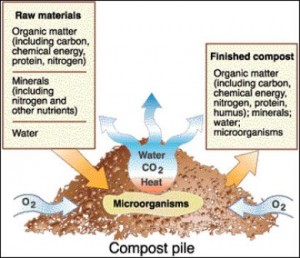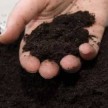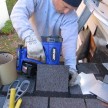Composting Facts
 Compost Bins
Compost Bins
A client recently asked me to build her a couple of compost bins that had lids to keep the critters out. That request led me to do some research on composting and compost bins.
Over the next week or two I will be sharing composting facts and the results of my research with you.
Backyard composting is an environment safe and cost-effective alternative to adding to the landfills or incinerators.
What is compost?
Compost is nutrient rich dirt that is made as a result of decomposing organic matter.
Why make compost?
Composting is an easy and practical way to handle your garbage and yard waste. It also is better for the environment by avoiding the process of bagging waste and taking it to the land fill. Compost also improves your soil and is beneficial to the plant root systems. If you have a garden, a lawn, trees, shrubs or even plant boxes, you have a use for compost.
Organic matter in the soil has been proven to improve plant growth by adding water and nutrient-holding capacity to sandy soils and adding essential nutrients to the soil.
What can be composted?
Yard waste, such as fallen leaves, grass clippings, weeds and the remains of garden plants make excellent compost.
Where to use compost?
Compost can be used to enrich the flower or vegetable garden and improve the soil around trees and shrubs.You can make a difference! Through composting, 30 to 40 percent of curb-side waste can be diverted from already overburdened landfills and turned into fertilizer for your lawn and garden.
RELATED POSTS:
Bio-Org Tumbling Composter
Rain Barrels
The Trashy Truth









